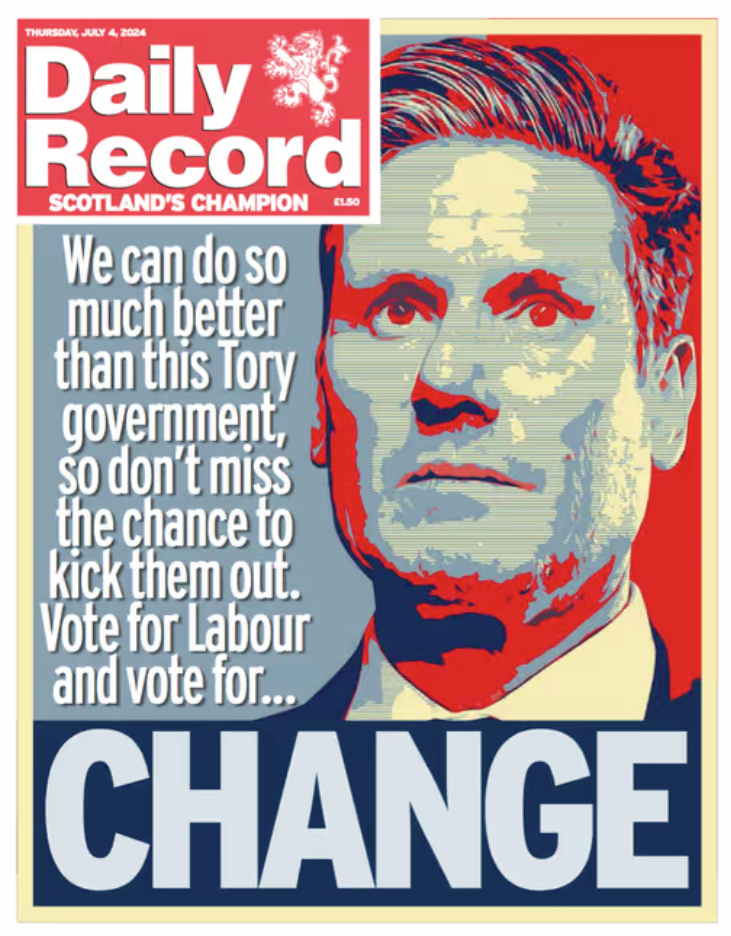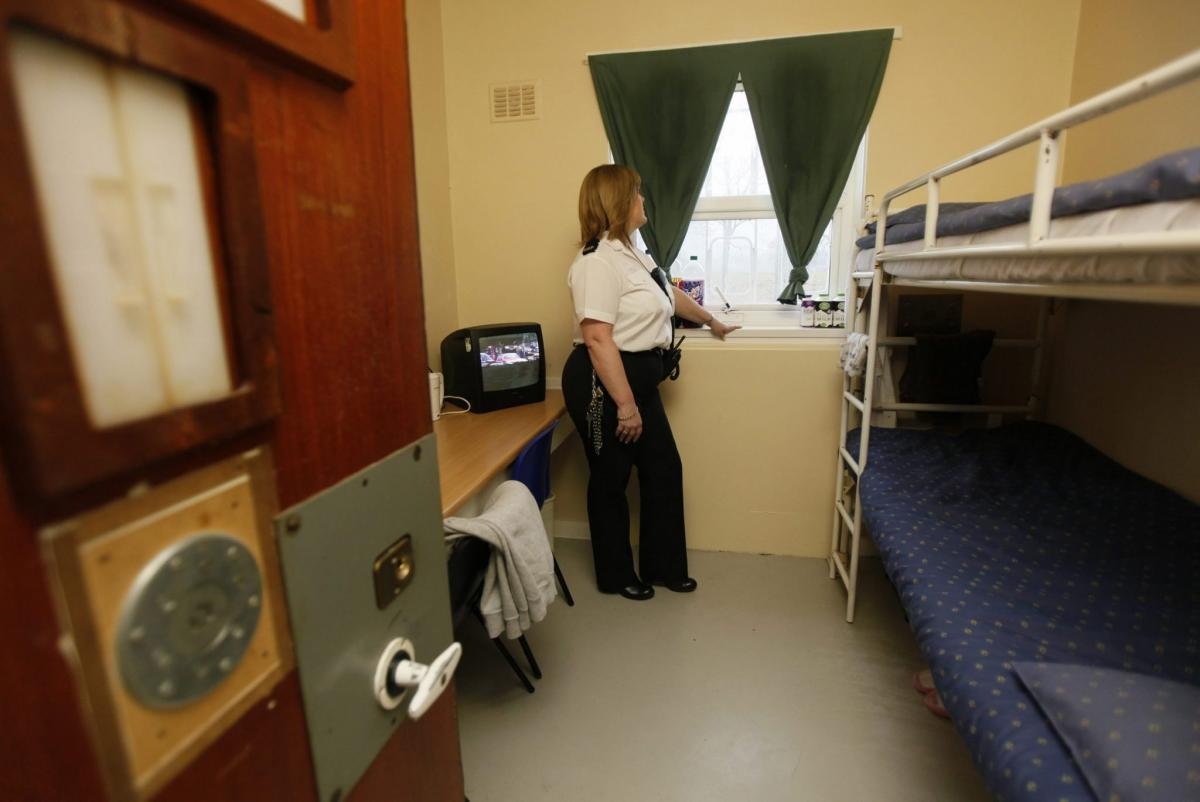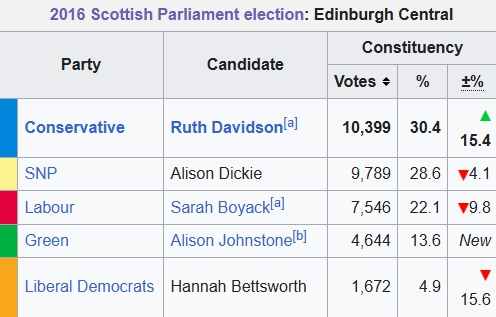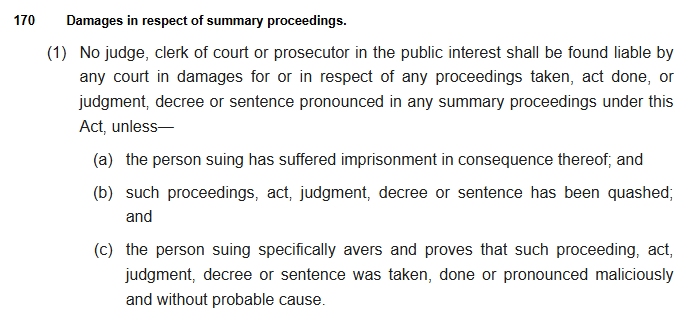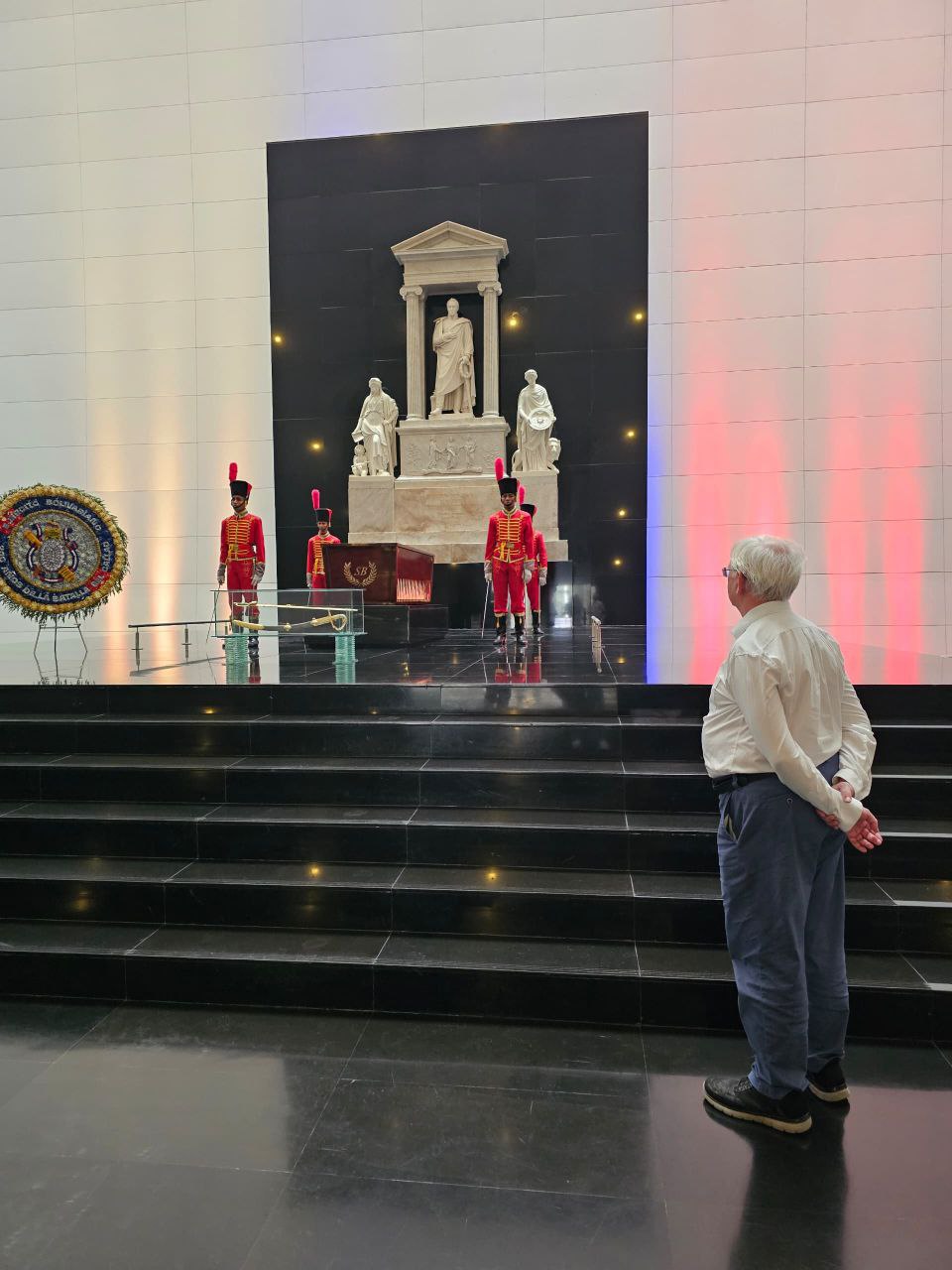What’s in a Name?
Sara Salyers If you answered, ‘not much’ you would be wrong. The British establishment has been playing fast and loose with Scottish constitutional law, historical fact and the terms of the English contract with Scotland, (the international Treaty of Union), all entirely on the basis of a kind of re-classification game, a terminological reinterpretation ofContinue reading "What’s in a Name? "
If you answered, ‘not much’ you would be wrong.
The British establishment has been playing fast and loose with Scottish constitutional law, historical fact and the terms of the English contract with Scotland, (the international Treaty of Union), all entirely on the basis of a kind of re-classification game, a terminological reinterpretation of all three, to shoehorn Scotland into the position of a colony but without that status because, it claims, its violations of the contract and of its own international obligations, the right to refuse Scotland any possibility of terminating the Union are precisely what Scotland, knowingly, signed up for. A voluntary colony, then. And the UK, government, along with its Supreme Court, can ‘prove’ it.
A name was enough for Dicey who claimed that as the states that signed the Treaty of union then ceased to exist, the Treaty could no longer be considered to exist. And as the English Parliament continued whereas the Scottish Parliament did not, the governing legislation was the English Act of Union, which now came under the jurisdiction of Westminster (the new Parliament the Act had created). The Treaty that became an act through an absurd argument, through ‘reclassification’.
A name was enough, in the 1930’s, to transfer the oil fields of Scotland to the control of Westminster. The Petroleum Extraction Act, instead of acknowledging the natural resources of Scotland as vested in the Crown, carefully constructed the legislation to say they are vested in ‘His Majesty’, the person not the institution. True in England but not in Scotland where by far the greatest portion of this wealth lies.
A name was enough for no less a person than Dorothy Bain, Lord Advocate of Scotland, to state as a certain fact, that the Treaty of Union saw the extinction of the kingdoms of Scotland and England with the creation of a new kingdom, the United Kingdom of Great Britain:
“The Kingdoms of Scotland and England ceased to exist following the Union and were replaced by the Kingdom of Great Britain.”
(Lord Advocate’s submission to the Supreme Court pp 35)
The absence of an ‘s’, (United Kingdom rather than United Kingdoms), appears to be the grounds for this retrospective assassination of the two kingdoms because the basis in constitutional law for such an interpretation is non-existent. (Non- existent, that is, unless you accept the English doctrine of parliamentary sovereignty which means the unaccountable, absolute and final authority over all laws of every kind. Under that principle, the British establishment can redefine the historic Union and the terms and meaning of the Treaty in any way it chooses. It has done so repeatedly with respect to Scotland’s legal relationship with the rest of the UK for at least the past 150 years. A new definition of the Union and what it means for Scotland has been produced to terminate every new Scottish claim for justice, humanity or self-determination. And like Bain’s revision of the facts, almost all have been fraudulent.)
A kingdom is normally the geographical area that comes under the government of a particular monarch. It is also accurately described as an area coming under the authority of a ‘crown’. The ‘crown’ encompasses not just a monarch but an institution which defines the scope and role of the monarchy. And where there is a crown, there is a kingdom.
The constitutional character of the crown varies from nation to nation. Unlike the English, the people of Scotland, the community of the realm, are represented in and by the Scottish crown. It is from the institution of the Scottish crown that popular sovereignty originates and where it resides to this day.
Where is the evidence for this constitutional character of the Scottish crown?
The earliest evidence is to be found in the 1310 Declaration of the Clergy and the 1320 Declaration of Arbroath. ….. Then there is the 1490 Rebellion Act. This authorises rebellion (against the monarch) if sanctioned by the Estates. Finally we have the deposition of a monarch, James VII, not by the Scottish Parliament but by the Convention of the Estates – ‘a full and free representative’ of the nation. A Scottish monarch rules only by the will of the people and by the people may be removed. Who then is sovereign, the final and absolute authority in Scotland? The authority by which a monarch reigns and by which a Parliament may govern. For with the deposition of James VII, inevitably, the Parliament was also deposed for it could not be convened without the king. It would be replaced by the same Convention which removed it, in a vivid illustration of the right of the Scottish people to decide “on the form of government best suited to their needs”. (This Convention, incidentally, was unlike any England could assemble. It was the continuation of the General Council of Scotland which could assume, and often had assumed, the full authority and role of the Parliament in the absence of a legitimate monarch.)
This is why, when Scotland and England came under the rule of a single monarch, (James VI and I), the crowns were not united. They could not be amalgamated given their very different constitutional characters. The crowns remain separate to this day and so the kingdoms remain separate, at least territorially. James VI remained King of Scots and became, also, King James I of England. Note the difference.
No Scottish monarch is ever king or queen of the land of Scotland. Because the land of Scotland is vested in the crown and the institution of the Scottish crown is vested in the people. They hold the land, with a monarch, (or not), as their representative and this land which forms ‘the major regalia’ of Scotland, its natural resources counted as ‘common good assets’.
If, at the Treaty of Union, Queen Anne had possessed the authority to alter the character of the crown she had inherited, ultimately, from Kenneth McAlpine, she would doubtless have done so. Self-evidently, however, she did not; she had no such power.
Had the Scottish Parliament possessed the sovereignty claimed by Westminster, perhaps it would have done so. But no Scottish Parliament ever claimed such absolute authority; it never laid claim to the sovereignty of the people, not even by ‘representation’. (Government in Scotland never ‘represented’ the people, it served them and, like its monarchs, was held answerable to them, in theory at least. Not quite the democratic ‘deficit’ we are led to believe.)
This is why we continue to be a distinct kingdom, why the two crowns remain distinct and why the territory of Scotland was never incorporated into the Union.
The evidence that both kingdoms have continued and were expected to continue is so overwhelming that presenting it here would be a bit like arguing that rain is wet. Yet Dorothy Bain opened the case for the right of the Scottish government to call a referendum by explaining that Scotland was extinguished, no longer exists, is just a region of a country now known as the United Kingdom of Great Britain. This is so blatantly false that the immediate question is why, in the name of sanity and reason, would the appointee of the First Minister, tasked with presenting Scotland’s case for a referendum, make such a blunder or else knowingly publish such an assault on Scotland’s constitutional integrity? Why would Sturgeon approve it?
One sight of this assault on the very foundation of our right to self-determination in the Lord Advocate’s written submission should have resulted in her being sacked on the spot. Because this is the stuff of Thatcher’s dreams. For the Unionists, it’s a chance to see another great lie endorsed by the highest court in the land, a lie that that would retrospectively justify every violation of the ‘voluntary political’ agreement between England and Scotland to the present day. It is a lie that demolishes the ground on which the case for devolution was made and won. It is a lie that removes the basis for any international appeal for lawful self-determination.
The ground we are speaking of, here, is the fact that Scotland entered into a political, not a territorial union, that it retained its own law in whole not just in part, (a law that vests authority in the nation, the people and not the government or monarch), that it remains a separate nation historically, culturally and linguistically and that it remains a separate kingdom under a separate crown, with a separate constitutional character from the crown in England.
In other words, Scotland is not a territory within the UK but a distinct, geographically and legally separate nation within the political Union that is the United Kingdom.
Bain swept all this away and on two other occasions she asserted the authority of the Union.
“It is a peculiarity that the Scotland Act refers to the Union of the Kingdoms of Scotland and England. Those states no longer exist, having been replaced by the United Kingdom”…(two hours later) “Nothing turns on the peculiarity. The union is a full political and economic union between what were two previously independent countries.”
The intervention of the SNP, produced by those within the party who demanded the right to present the true, constitutional grounds for Scotland’s exercise of the right to self-determination, was not so much as mentioned by Bain. She did the job of the Union and for the Union. And then some. Even the judges and the ‘opposition’ were left perplexed.
Yet this is the case put forward by our Lord Advocate for the right to have an unenforceable opinion poll of a referendum! (Which cannot be challenged if rigged because, with no binding legal result, there can be no fraud.) A trade of our lawful, constitutional rights whose partial recognition gave us devolution and whose full establishment is the true and best hope for liberation, for a meaningless opinion poll. So what was really at stake here and what was the true ‘game plan’?
A referendum is not the issue any longer. We no longer have to ask our Union ‘partner’ whether we have the right to become independent. It has been made absolutely clear that we do not. This issue we have to face up to is the now ‘legal fact’ of Scotland’s constitutional character as a kind of voluntary colony which is now on the record to provide precedent: “Even the Scottish Lord Advocate admitted …”
What is now at stake is whether or not we allow this stand, to become accepted both within the UK and internationally. Because if British establishment wishful thinking is allowed to rewrite history, treaty and constitutional law, to decree by ‘fiat’ that Scotland and England ceased to exist not only as states but as nations and kingdoms, then Scotland stands in exactly the same position, internationally, as the territory of Catalonia – oh, and Quebec – with respect to its ambitions for self-determination. Oh, and Scotland’s resources ceased to belong to Scotland once the new ‘kingdom’ was established. A not unimportant point.
Craig Murray recently observed:
“Dorothy Bain could be a truly, spectacularly, ignorant, stupid and incompetent lawyer. Or, she could have been cleverly and deliberately failing the Scottish Government on whose behalf she was supposed to be acting, which would be an act of dreadful professional wrongdoing. Or she could have been asked by Sturgeon to present a case to the Supreme Court that was sure to fail. I put those in ascending order of probability. There are no other possibilities. (Craig Murray, 29.9.22 ‘Dorothy Bain: Incompetent or Corrupt?’)
He is entirely correct. So where do we go from here?

Scotland’s hope lies, now, in following the path Murray has long advocated. We have to accept that no colony gets justice and self-determination by asking permission of a coloniser whose continued income depends on the resources of that colony. It gets freedom only by going outside the authority of the oppressor, either by taking it independently or through a higher authority. Scotland will almost certainly have to do both.
We are, however, and as Murray says, in a political union created by an international treaty.
International law
The UK government is a signatory to the laws and is counted among the nations who have undertaken to be bound by those laws. Its seat, as one of only five permanent members of the fifteen member states, in the UN Security Council means that it is in the position of interpreting and applying the international law established by the UN Charter.
“To establish conditions under which justice and respect for the obligations arising from treaties and other sources of international law can be maintained”
- Nothing contained in the present Charter shall authorize the United Nations to intervene in matters which are essentially within the domestic jurisdiction of any state or shall require the Members to submit such matters to settlement under the present Charter; but this principle shall not prejudice the application of enforcement measures under Chapter Vll.
It will require, in fact it was always going to require, international diplomacy and international pressure to force the British State to comply with both domestic and international law and to recognise the rights established in Scots law and ratified by the parliaments of 1706 md 1707.
MY COMMENTS
This is an extended and edited version of the article first published in iScot magazine, 22nd October 2022. Later this week planning and organisational groups including Salvo, Liberation and the Steering Group of the Scottish National Congress will meet in Oban over two days to put together the final plan to launch a major new initiative that will be the start of a extensive campaign that will feature both significant social media activity as well as street work and innovative, entertaining and educational public events across the whole of Scotland. I know I am biased having being involved with others in this planning but I believe it can be hugely effective and will give a great boost to the entire YES Movement. It has taken enormous determination and effort to keep this plan secret for months so hopefully it won’t be long after Oban before everything will be in place and we can finally get on with the full launch. You will not have seen it’s like before. Please share this article widely, we must let all Scots know that the fight for freedom has a lot of new energy and direction about to materialise.
I am, as always
YOURS FOR SCOTLAND.
BEAT THE CENSORS
Regretfully there are some among us who seek to censor what others read. Sadly within the YES movement there are sites which claim to be pro Indy but exist to only promote one Party and will not publish articles which come from bloggers who don’t slavishly support that Party to the exclusion of the rest of the YES movement. I ask readers who support free speech to share articles from Yours for Scotland as often as possible as this defeats the effectiveness of the censors.
FREE SUBSCRIPTIONS
Free subscriptions are available on the Home and Blog pages of this site. This allows,for an email of each article to your Inbox and that is now how several thousands get my articles each day. This avoids problems that some have experienced gaining access from Twitter and Facebook. You will be very welcome to choose whatever route works best for you.
SALVO
The work and important development of Salvo has been a beacon of hope in 2022 and as it develops Salvo is creating campaigning hubs throughout Scotland. Salvo will join with Liberation.Scot and as the campaigning arm of Liberation we are looking at very effective campaigns kicking off very early this year and introducing some new campaigning methods as well as those that have worked well in the past. This requires money so all donations to this site, once the running costs are covered, will go to support the work of Salvo/ Liberation. I think you will see it well used and effective.
LIBERATION.SCOT
We are seeking to build Liberation.Scot to at least 100,000 signatures just as quickly as we can. This is part of our plan to win recognition as an official Liberation Movement via the United Nations. We intend to internationalise our battle to win Independence and through the setting up of our Scottish National Congress will prepare and develop our arguments to win progress in the International Courts. Please help by signing up at Liberation.Scot. It is from those who sign up to Liberation.Scot that the membership of the SNC will be created by ballot.
What's Your Reaction?








